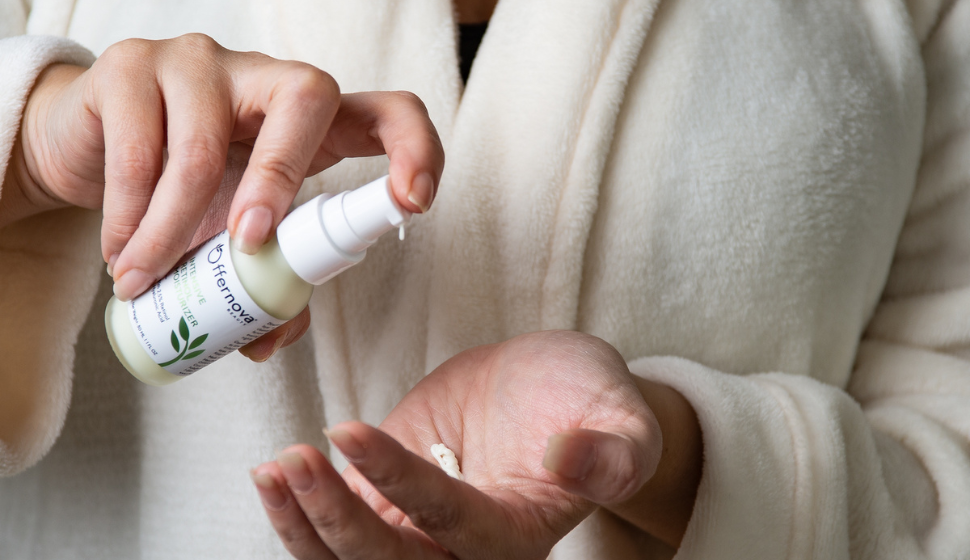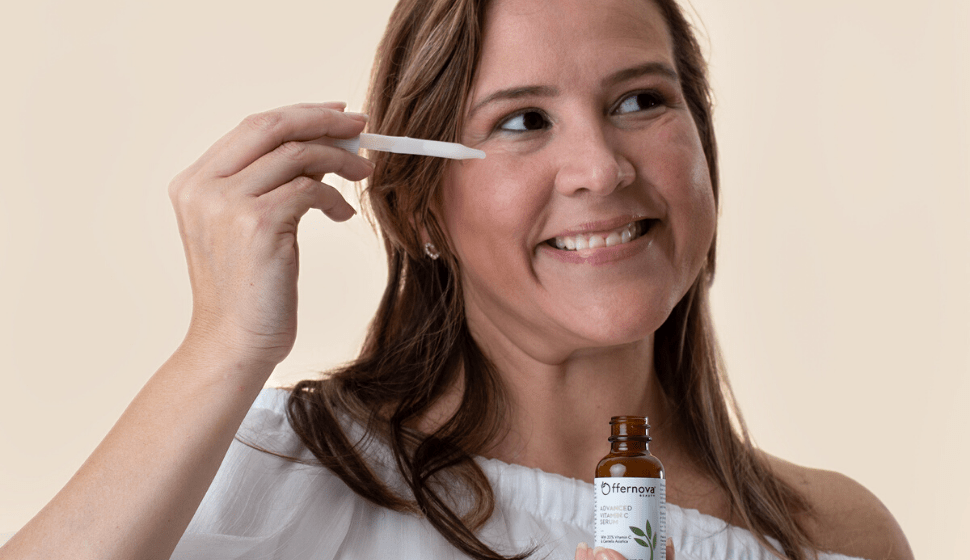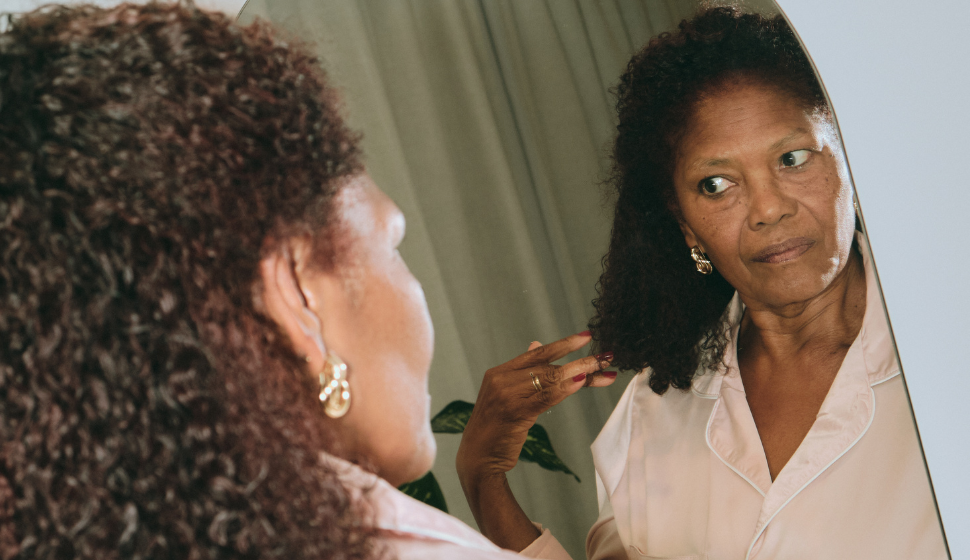According to the Cleveland Clinic, collagen is a protein responsible for 75-80% of our skin. However, around the age of 25-30, our skin significantly decreases the amount of collagen it makes and leaves us with fine lines, wrinkles, and more.
Retinol (a form of vitamin A) is a fat-soluble vitamin which the body needs to keep the skin’s appearance healthy and functioning properly. Our body cannot produce vitamin A on its own, and it needs to be absorbed by food or supplement. You can feed your skin vitamin A through topical products like a retinol moisturizer.
Retinol comes in many different forms – from natural to synthetic, different types of concentration, and even prescription versions.
In a nutshell, topical retinol products interact with our skin to produce retinoic acid, which boosts collagen to make our skin look and act younger.
Why Do We Need Retinol in Our Skincare Routine?
In your mid-20s, you may start to notice the following:
- Fine lines and wrinkles
- Pigmentation issues
- Acne scars not healing as quickly
- Less plump and glow
All of these characteristics are signs of aging skin. This means that our skin cells are turning over slower and not producing collagen like it used to. This is where the use of retinol comes in, which helps the skin remember how to act the way it used to when it was young.
Retinol Benefits You Need To Know
Now that you know what retinol is let’s take a look at how it improves skin.
Anti-aging
We love retinol for its ability to decrease expression lines and wrinkles. Thanks to its ability to stimulate collagen and elastin in the skin – it helps reduce wrinkles and prevent new ones from forming.
Corrects Sun Spot
Sunspots, are dark spots on the skin caused by exposure to the sun. You may have heard of them referred to as “liver spots.” However, they have nothing to do with your liver and everything to do with collagen, which is what your skin needs to help heal pigmentation issues.
Treats Acne and Scars
Many people use retinol for acne because it works to remove dead skin cells and prevent clogged pores, which can cause the skin to breakout. By adding active ingredients like retinol to your skincare regimen, you can treat acne and improve the scars and spots they leave behind.
Improves Skin Hydration
Did you know that 64% of our skin is water? This means it’s important to stay hydrated. Since retinoic acid helps increase cell turnover and collagen production, it keeps our skin hydrated, plump, and youthful.
Reduces the Size of Pores
One of the many jobs of retinol is to clear clogged pores, reduce oil production, and remove dead skin cells. The combination of these three actions keeps the appearance of pores smaller and skin tighter.
Improves Skin Texture
Due to the collagen retinoids help produce, you can improve pigmentation issues from scarring and sunspots. Retinol can also even out the texture of your skin and make it more soft and supple to the touch.
Provides Antioxidants
Retinol is also an antioxidant, which is a natural form of vitamins and minerals. These help to reduce inflammation and combat free radicals that cause signs of aging.
Recommendations When Applying Retinol
Retinol is a long term treatment, so it’s important to realize beforehand that you may not start to see the benefits until 6-12 months. However, once you begin to see the benefits, we're willing to bet that you'll be shocked by the change.
The first step in using retinol is to apply it to clean, dry skin. Be sure your skin is not too hot before using retinol to avoid unnecessary redness and irritation.
Don’t be concerned if you notice side effects like your skin being flush after applying retinol – that’s completely normal. You may also experience dry skin, so don’t forget to follow up with a moisturizer after using retinol.
We recommend only using a pea-sized amount of retinol at night because it can make the skin more sensitive to the sun. Since sun exposure wrecks your skin and ages it, you’ll want to apply it at night and use a good, nontoxic SPF during the day.
Our other hot tip for you is to start slow. We recommend using retinol one to two times a week and slowly build up to what your skin can handle. Some people with sensitive skin find that they can only handle retinol up to three times a week.
Are You Ready to Try Retinol?
Who says you need to fear aging? Now that you understand why retinol benefits and the skin and how you can safely apply it to your skincare regimen – try it for yourself and stay forever youthful, clear, and glowy.
If you’re looking for additional skincare tips, be sure to take our Skin Quiz. This quiz will help you understand your specific skin type and how to treat it appropriately.



